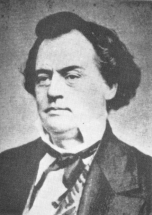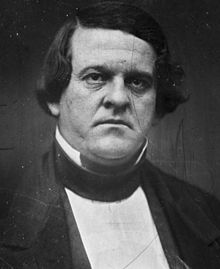To
the end, therefore, that the position of this State may be clearly
apprehended by her confederates of the South and of the North, and that
she may be blameless of all future consequences.
Be it Resolved by the People of Georgia in
Convention assembled,
First, That we hold the American
Union, secondary in importance only to the rights and principles it was
designed to perpetuate. That past associations, present fruition, and
future prospects, will bind us to it so long as it continues to be the
safeguard of those rights and principles.
Secondly, That if the thirteen
original parties to the contract, bordering the Atlantic in a narrow
belt, while their separate interests were in embryo their peculiar
tendencies scarcely developed, their revolutionary trials and triumphs,
still green in memory, found Union impossible without Compromise, the
thirty-one of this day, may well yield somewhat, in the conflict of
opinion and policy, to preserve that Union which has extended the sway
of republican government over a vast wilderness to another ocean, and
proportionally advanced their civilization and national greatness.
Thirdly, That in this spirit,
the State of Georgia has maturely considered the action of Congress
embracing a series of measures for the admission of California into the
Union, the organization of territorial Governments for Utah and New
Mexico, the establishment of a boundary between the latter and the
State of Texas, the suppression of the slave trade in the District of
Columbia, and the extradition of fugitive slaves, and (connected with
them) the rejection of propositions to exclude slavery from the Mexican
territories and to abolish it in the District of Columbia, and whilst
she does not wholly approve, will abide by it as a permanent adjustment
of this sectional controversy.
Fourthly, That the State of
Georgia in the judgment of this Convention, will and ought to resist
even (as a last resort,) to a disruption of every tie which binds her
to the Union, any action of Congress upon the subject of slavery in the
District of Columbia, or in any places subject to the jurisdiction of
Congress incompatible with the safety, domestic tranquility, the rights
and honor of the slave-holding States, or any refusal to admit as a
State any territory hereafter, applying, because of the existence of
slavery therein, or any act prohibiting the introduction of slaves into
the territories of New Mexico and Utah, or any act repealing or
materially modifying the laws now in force for the recovery of fugitive
slaves.
Fifthly,
That it is the deliberate opinion of this Convention, that
upon the faithful execution of the Fugitive Slave Bill by the proper
authorities depends the preservation of our much loved Union.
|



